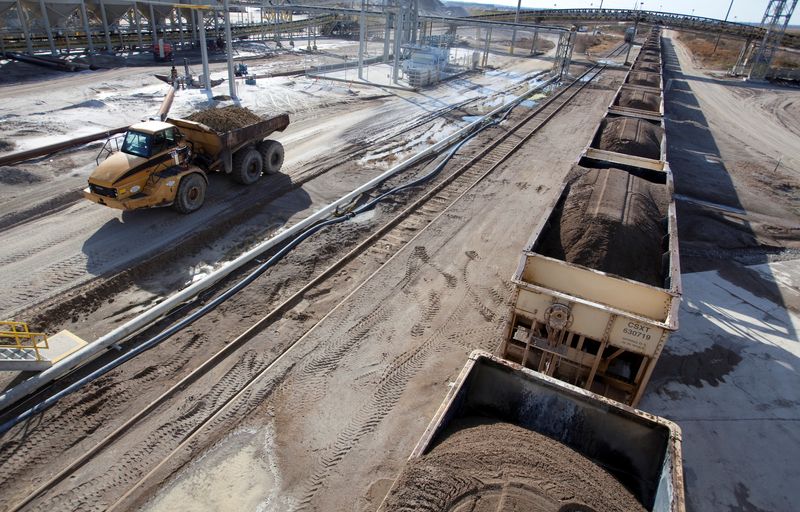By Ruhi Soni
(Reuters) -Mosaic Co said on Monday it expects tight grain and oilseed markets into 2023, encouraging the continued use of fertilizers despite their surging costs.
"The war in Ukraine, high temperatures in North America and Europe, and developing drought conditions in parts of South America highlight the risk for reduced yields globally," Mosaic said.
The world's fourth-largest fertilizer producer added supplies of crop nutrients potash and phosphates remain constrained after sanctions on Belarus and export restrictions in China.
Companies such as Mosaic have been raising production after sanctions on Russia and Belarus, the world's No.2 and 3 fertilizer suppliers.
The sanctions have worsened global supply shortfalls of crucial crop nutrients and sent their prices soaring. During the April-June quarter, prices of nutrients approached levels not seen since the 2008 food crisis, when the prices had hit an all-time high.
Mosaic, however, posted second-quarter adjusted earnings of $3.64 per share, missing analysts' expectations of $4.04 a share, as per Refinitiv data.
Net sales jumped 92% to $5.37 billion but missed consensus of $5.62 billion.
Mosaic, the world's largest producer of finished phosphate products, said net sales in its phosphates segment grew to $1.8 billion from last year's $1.2 billion.
CF Industries Holdings Inc (NYSE:CF), which overtook Mosaic in market capitalization during the quarter to become the world's third-biggest fertilizer maker, posted record quarterly profits.

Net income attributable to CF was $1.17 billion, or $5.58 a share, in the quarter ended June 30, from last year's $246 million, or $1.14 per share.
CF, primarily focused on nitrogen-based fertilizers, said it expects global nitrogen supply-demand balance to remain tight "for the foreseeable future", as the world rushes to replenish grains stocks to prevent a humanitarian crisis.